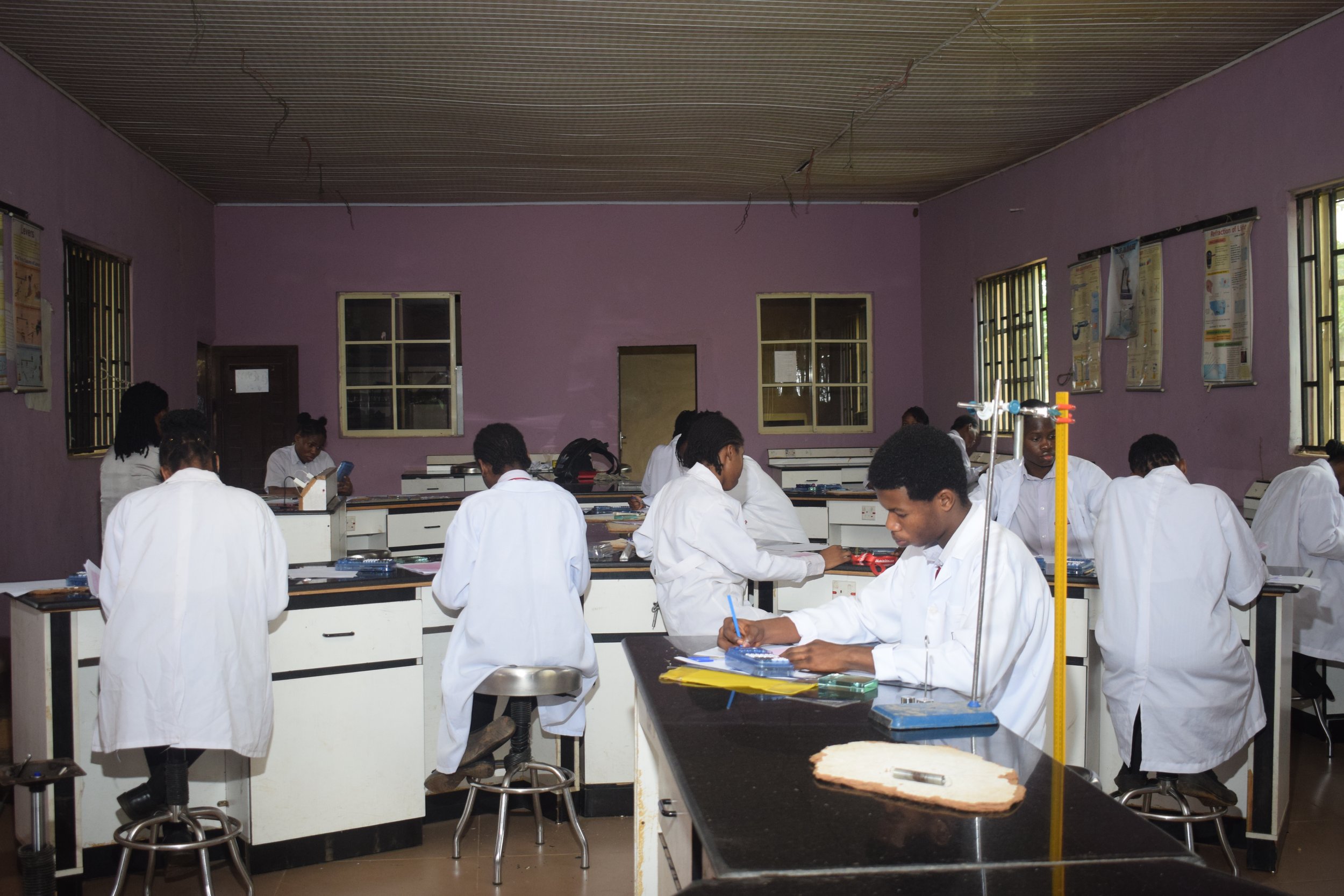Curriculum
We operate an integrated, international curriculum tailored towards such examinations as WASSCE, NECO and IGCSE 'O' and 'A' levels. The philosophical orientation of our curricular programme is pragmatism. This, coupled with the principle of child-centredness, makes ample room for discovery learning and active pupil participation in problem-solving activities. Pupils are involved in the construction of knowledge for optimum transfer value and social relevance. By this arrangement, teachers are regarded as facilitators and guides in the teaching-learning enterprise, rather than exclusive repositories of knowledge.
Furthermore, we provide opportunities for learning engagements which focus on the four pillars of learning as advocated by the Delor's Report to UNESCO's 1996 New Concept of Qualitative Education vis:
Learning to know;
Learning to do;
Learning to be;
Learning to live together.
In this connection, carefully thought-out and well-articulated curricular programmes/options are prepackaged and mediated through teacher-intervention for holistic development of learners. We try to establish priority among different possible learnings and present learning tasks are filtered through the screen of past and future experiences. Specific subject offerings are provided for their knowledge potential in order to foster learners' maximum cognitive development. Emphasis is also placed on practical applications of the theoretical components of those subject offerings for the acquisition of relevant competencies for economic survival.
Our curriculum delivery process promotes hands-on educational/training programmes that are well-adapted to the present automated age. Our students are given practical exposure to foundation courses for entrepreneurship education. These special programmes are run side-by-side with our regular academic courses. Thus, students have a unique opportunity of earning international certificates in Music, Clothing and Textile, Information Technology, Computer Technology etc.
We subscribe to the Responsive Classroom Approach, a curriculum orientation in which the social curriculum is placed on the same pedestal as the academic. The social curriculum is geared towards healthy character formation and wholesome peer interaction. Our curricular offerings are thus targeted at transforming the recipients not only in mind but also in manners. In this connection, the school organizes, on a regular basis, excursions to places of interest within and outside the country. Some exploratory visits and exchange programmes between our school and some other international institutions in Africa and Europe have been going on in batches for some time now and we are set to explore greater avenues of making the school a window to the world.
Moreover, in keeping with our passion for all-round educational engagements, the school runs an ICT-driven curriculum which is aimed at empowering our products for achievement in the present automated age. Pursuant to this, a multi-level school-wide ICT-driven curriculum is fully in operation while software packages which are compliant with our school curriculum are constantly being developed and upgraded. Moreover, teacher training sessions and necessary procurements of interactive learning units and other ICT paraphernalia are fully on course. These arrangements are targeted towards accelerated, stimulating and engaging teaching-learning encounters. Besides, our e-learning programme affords our pupils and students an unlimited access to our teaching-learning materials on-line. (www.gooshepherdschools.ng).
Individual attention, small class size and moderate staff-pupils' ratio result in maximum learning gains. The school maintains a rigorous academic discipline and discountenances all forms of unseriousness in school activities. Homework must be done promptly and decently. Periodic performance assessments are organized and end-of-term examinations and record of progress are presented to parents for gauging students' learning. Parents are most welcome to the school to discuss the progress of their children with us. Pupils are also intimated with their academic progress during regular pupil conferencing. Besides, a special programme is organized for weak pupils/students.
Our curricular activities are organized in phases and levels covering the pre-school syllabus and grades 1 - 12.
The Pre-School System: Age Range 2 - 5
This provides comprehensive care and adopts educational strategies that encompass health, nutrition, socialization, physical development and intellectual stimulation of kindergartners. The pre-school institution is set to give your child a head start in life by laying a solid foundation for life-long learning. It offers a child-friendly learning and play environment for careful nurturing of pupils' native capacities in order to facilitate future learning.
Careful efforts are made to inculcate social norms, the spirit of enquiry, creativity, cooperation, team work, a sense of independence, trust, and acceptance. The curriculum also focuses on the development of cognitive and practical concepts and skills, rudimentary literacy and numeracy, shapes, forms, safety and health habits etc. Ample space for play and adequate classroom space give room for sensory exploration, intellectual stimulation, motor coordination and social competence; Classroom interactions revolve round spontaneous play, expressive learning, pre-reading fundamentals, art, music, poems, and rhymes.
The Elementary Level: Age Range 5 - 11
.This is conceived as the bedrock of advanced future learning. The aim at this level is to equip pupils with the basic academic skills of reading, writing and computation. Curricular activities therefore centre on the development of manipulative skills, mental skills, communication skills, and interpersonal skills, all of which are considered necessary for future work success. Careful effort is made to consolidate the educational gains and the rudimentary work done at the pre-school level. Learning tasks, graded according to age and range of experience, are negotiated through exploration and experimentation and are intellectually stimulating and socially rewarding, bringing about the holistic development of the growing child.
The Secondary: Age Range 11 - 17
Curriculum offerings at this level revolve round government stipulations in the National Policy on Education (NPE 1977, 1981, 1998) and the University of Cambridge Local Examination Syndicate (UCLES). Students are tailored towards external examinations such as WASCE, NECO and IGCSE O & A levels. The SAT & TOEFL academic programmes are geared towards intellectual cultivation, science and technology awareness and advanced literacy. Students are exposed to a set of core subjects and a wide array of vocational subjects to provide a lee-way for students to make firm commitments, thus fostering overall work adjustment for future fulfillment.





